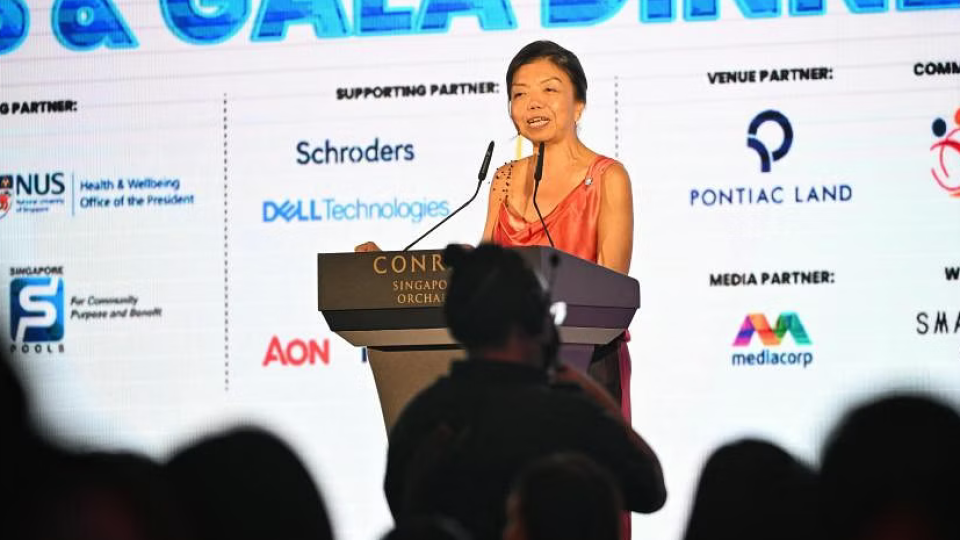March 18, 2024
SINGAPORE – A new benchmark is being developed to help employers improve the sense of well-being among staff, and to show them the business value of doing so.
Many organisations focus on employee programmes such as counselling, stress management or even yoga classes when reporting efforts at advancing mental resilience at their workplaces.
Now, local charity Workwell Leaders (WWL) wants to track the impact on workers of changes made to workplace behaviours, workload and work design, team collaboration and a sense of belonging.
WWL, which promotes leadership in workplace well-being, also wants to put a value on what happier and more resilient workers bring to productivity, attrition and innovation.
It has set up a work group to design a research study that will identify best practices for local organisations to benchmark against, at no charge.
WWL said the group hopes to finish the study parameters by end-October. The charity will commission the research and hopes to release its findings by the end of 2024 or in 2025.
WWL chairwoman Anthea Ong told The Straits Times that this will be the first such benchmark in the world.
The former Nominated MP added that the first adopters will likely be larger companies, but the benchmark will be designed to encourage these firms to move their best practices down their supply chains of small and medium-sized enterprises (SMEs).
She said: “Whether it’s peer support, training resources, training for mental-health first aid, even creating peer support groups that also involve some of the employees of the partners, that’s an opportunity that we haven’t really leveraged to get the larger organisations to bring (SMEs) along.”
Ms Ong said the target is to have 25 per cent of employers here using the benchmark when making strategies and investments within three years of its launch.
The work group helping to develop the benchmark has 12 members, coming from the government, business and academia.
Professors Niki Ellis and Dame Carol Black, two international government advisers on workplace health, are among them. The group also includes Dr Reuben Ng, a behavioural scientist, and Dr Andrew Tay, an occupational health doctor and a chief well-being officer. Both Dr Ng and Dr Tay are from the National University of Singapore (NUS).
The Singapore National Employers Federation and elevator and escalator manufacturer Otis are also in the group.
Ms Ong announced the initiative at the 2024 Workwell Leaders Awards gala dinner on March 14, where President Tharman Shanmugaratnam urged corporate leaders to take the lead in removing the stigma of poor mental health.
He told the 400 guests at Conrad Singapore Orchard via a recorded video: “It’s not just about economic cost. It’s also the right thing to do, for all of us to be concerned about this. It makes us a better society.”
A study by Duke-NUS Medical School and the Institute of Mental Health released in 2023 projected that mental health suffering costs the Singapore economy $15.7 billion, or 2.9 per cent of its gross domestic product, every year.
Workplaces form one of four areas of focus under the National Mental Health and Well-being Strategy launched in 2023 to build a whole-of-society effort to support victims of mental stress.
Now into its second year, the 2024 WWL awards recognising workplace mental-health champions went to NUS, Otis International Asia Pacific, PSA International and IHH Healthcare.
Winners said the accolades raise awareness of the cause, and validate and encourage their efforts to make their organisations kinder places to work.
Dr Prem Kumar Nair, who won the Well-being Chief Executive award, said being a physician himself makes him aware of the intense demands and stresses on healthcare workers.
He said: “I too have faced the highs and lows of life… and witnessed first-hand how a supportive work environment can make all the difference.”
Dr Nair, the chief executive of IHH Healthcare, cited the provision of shuttle bus services for staff living in Johor during the pandemic and the offering of the Intellect app as part of the firm’s efforts. The app provides its employees clinical therapy, helplines and telehealth coaching.
Mr Clarence Ti, deputy president for administration at NUS, won the CEO’s Well-being Partner award for his data-driven approach. He launched accountability metrics to track commitment among the university’s leaders and employees’ well-being.
The trophy for Well-being Organisation of the Year went to Otis.
The company offers its 71,000 workers worldwide access to mental well-being programmes, and trains its managers on unconscious bias and mental health awareness. It also sent employees to learn mental health first aid and instituted wellness champions.
Mr Stephane de Montlivault, Otis president for Asia-Pacific, said: “Singapore is recognised as having one of the Asia workforces that is most affected by burnout and fatigue. It’s a culture where adults work the highest number of hours in Asia-Pacific, and where people are reported to be the most sleep-deprived.”
Recognising efforts and progress made by model companies will inspire others to emulate good practices, he said.
“No one should need an award for doing the right things,” he said. “However, I would argue that awards bring important benefits as they raise visibility of actions done by too few companies in an environment where mental health should be top-of-mind.”


